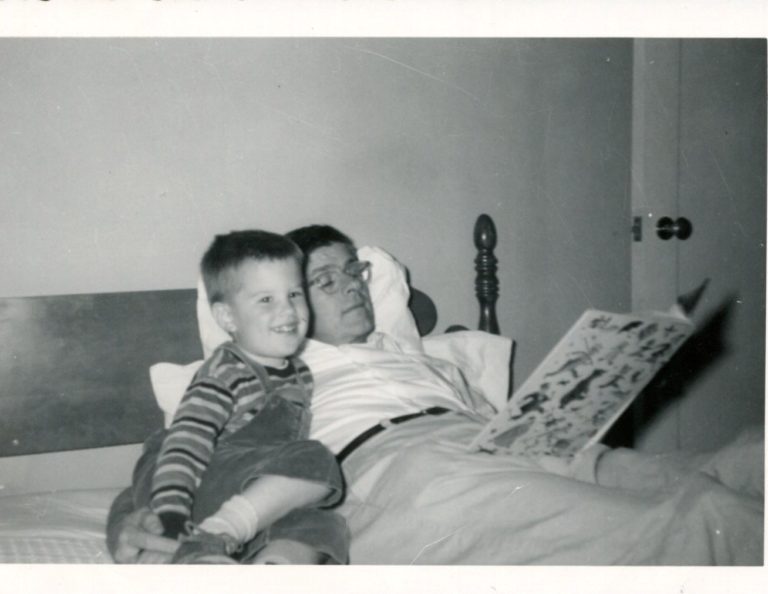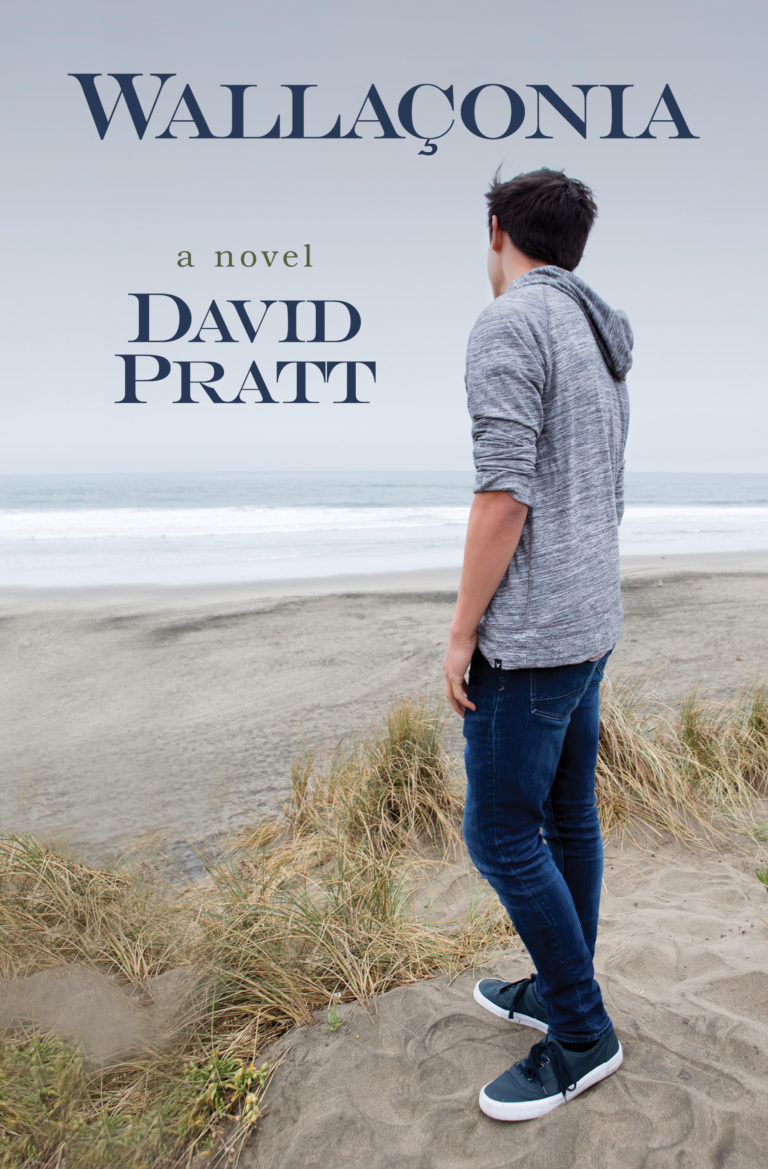Love Bytes says hello and welcome to author David Pratt today. David is here to talk about his novel Wallaconia. Welcome
Wallaçonia is one of the few novels out there—so I am told—about gay male mentorship. An eighteen-year-old is asked by his single, presumably gay neighbor to work in his bookstore over Christmas. “Presumably” turns to “actually,” and a friendship begins that helps the boy grow, grow up, and finally leave home for a richer life elsewhere.
I did not set out to write about mentorship, yet I must have craved it. I am a gay man of a certain age who never had a son, and so without planning to, I immersed myself in a world in which an older man got to help a younger one, and in which a younger one got helped. For I myself had no gay mentor at that age, and years later I had begun to feel that lack, too.
I did have straight male mentors who would have “understood,” had I been able to tell them. Those men saw me through difficult times by inspiring me in other areas, chiefly artistic ones, but we never discussed the most difficult area of all. I was not ready. And they were limited.
Also, like the hero of Wallaçonia, I had a father. A sit-and-read-the-paper father who was nonetheless a sensitive man. He taught piano. That is, whether it was natural to him or not, he mastered the art of sitting with individuals in close quarters for 45 minutes at a time, listening to their playing, listening to them, correcting mistakes, ultimately drawing performances from them that were rarely more than adequate but may have been personal triumphs. His students loved him. Many still do, twenty-six years after his death. They donate to a fund in his name, and when I thank them, I get adoring notes in return.
A couple of weeks after my father died I walked into a bookstore on Prince Street in New York City, and a stirring piece of classical music caught my ear. I stopped to mark the melody and thought, I’ll have to ask Dad what that is.
Oh. Right. I won’t. Though I continued for many years after to think that, ever so briefly, especially when I heard classical piano.
My father called me “Ol’ Boy,” and while I did not bring him my problems, we did do father-son projects together. My favorite was timing the musical selections for his classes. He wanted to play them brief excerpts to make points about styles and motifs. He recorded those excerpts from vinyl records onto reel-to-reel tape. I held the stop watch, so he’s know how much class time to allot. We did this the Sunday before the school week began, maybe after we raked leaves or after he took me sledding or before we played catch. These are the small, heroic actions of the mentor. In Wallaçonia, the mentor, Mr. Baxter, starts out offering Jim, the hero, a job. They share cups of coffee together, and so, in a chair by the Franklin stove in the bookstore, Mr. Baxter is there when the roof caves in on Jim. He is there, in fact, with a heartrending story of his own past, revealed bit by bit.
My father was not there for my coming out. He had already died. It was not thinkable to bring him such a revelation, though in some quiet, deeply buried way, I suspect he might have reacted as the father does in Wallaçonia. That key scene of the book is, in fact, a tribute to my father, allowing him credit for something he never did because he never had the chance. That scene is my way of saying, “I’d like to believe that, given the right circumstances, you would have handled my homosexuality this way.”
Like my own father, the father in Wallaçonia alas fails to hold off the mother. I don’t think my father knew how to protect me from my mother. I am not certain he believed he had to protect me from her. The damage she did could be vicious. (The mom in Wallaçonia is a lower key; a full-scale portrayal of my mother would have taken over the book.) But it could also be subtle. Her militant lack of curiosity was most oppressive. She constantly introduced venomous opinions with, “All I know is…” and “You can’t tell me…” Try to tell her differently, and you got, “I don’t know anything about that, but…” How do you protect a kid from that disheartening aggression, rigidity, and willful ignorance? Maybe by asking him to time excerpts of Bartók, Beethoven, Shostakovich and Mozart, so he hears and becomes curious. Maybe by performing very obvious magic tricks. Maybe by teaching him to operate a drill press and a band saw to make Mom a little wooden rack for her grocery shopping lists and pencil.
And maybe, as you see in the photo, by reading to him—fanciful, languagey tales like the Just So Stories and Doctor Doolittle (not yet discredited for their racism). My favorite of the Just So Stories was the one about the creation of the alphabet. You can see where I was going, writing years later about an older man and a younger one alone in a vast repository of books, coming to terms with what life dealt them.
I hope you enjoy Wallaçonia, and I hope you have found or will find someone to whom you can pass on your experience, including, yes, even your suffering.
Blurb:
High school senior Jim Wallace faces the approaching Christmas holidays with a mixture of hope and dread. To escape the pressure, he imagines the woods and marshes around his home to be an independent country, Wallaçonia, where he is accepted and recognized as the “upright and sterling” young man people expect him to be. And he may make it yet: this could be the week he and his girlfriend Liz finally have sex, putting to rest any lingering doubts Jim has about what kind of guy he really is. But then Pat Baxter, a neighbor, asks him to help out in his bookstore during the holiday rush, and Jim starts making new connections – and rediscovering an old one. Will Jim leave the sanctuary of his imaginary Wallaçonia for the real world? And which real world will it be, the one with Liz or the one that beckons from the bookstore?
Buy Link:
Link to the book video is here: https://vimeo.com/211172226
 David Pratt won a 2011 Lambda Literary Award for his debut novel, Bob the Book. He is also the author of the novels Wallaçonia and Looking After Joey. His story collection, My Movie, includes new work and short fiction originally published in Christopher Street, The James White Review, Harrington Gay Men’s Fiction Quarterly, Velvet Mafia, and in several anthologies. David has directed and performed his work for the theater in New York at the Cornelia Street Cafe, Dixon Place, HERE Arts Center, the Flea, and in the New York International Fringe Festival. He lives in Michigan.
David Pratt won a 2011 Lambda Literary Award for his debut novel, Bob the Book. He is also the author of the novels Wallaçonia and Looking After Joey. His story collection, My Movie, includes new work and short fiction originally published in Christopher Street, The James White Review, Harrington Gay Men’s Fiction Quarterly, Velvet Mafia, and in several anthologies. David has directed and performed his work for the theater in New York at the Cornelia Street Cafe, Dixon Place, HERE Arts Center, the Flea, and in the New York International Fringe Festival. He lives in Michigan.






